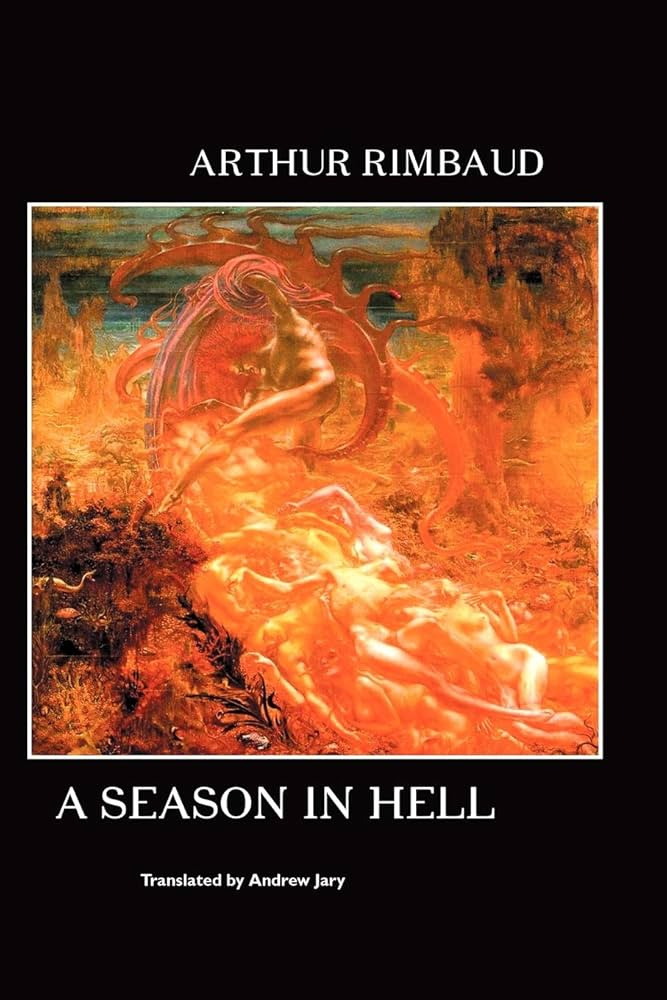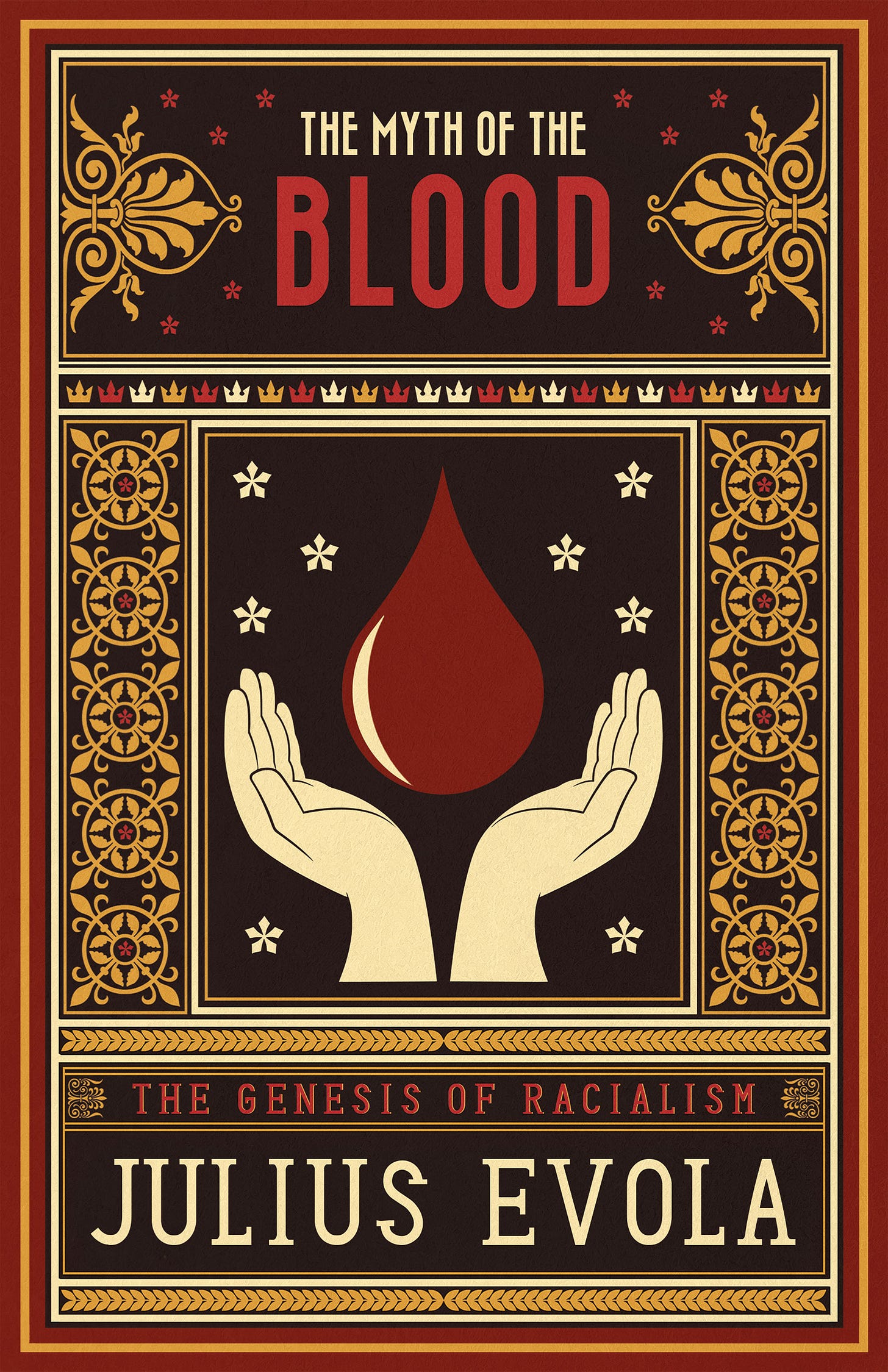Decadent Chronicles 6: A Season in Hell
by Christian Chensvold
Christian Chensvold argues that Francis Ford Coppola’s film Bram Stoker’s Dracula, through Julius Evola’s lens, portrays a noble guardian of Tradition cast into a season in hell by Christianity and redeemed through occult love.
Julius Evola’s The Myth of the Blood examines the doctrine of race, but we can draw on the Italian baron’s wisdom to examine another sanguine myth: that of the blood-sucking vampire Count Dracula, guardian of the Primordial Tradition.
I’ve seen the 1992 film by Francis Ford Coppola 33 times over the past 33 years, but only by putting on an Evolian monocle was I able to see the story’s exploration of the fundamental problem, the decline of the world of Tradition and true spirituality in the wake of the three Abrahamic religions. Seen this way, Bram Stoker’s Dracula is revealed to concern not an evil man cursed, but the curse of Christianity upon a guardian of Heroic Spirituality and the regal tradition.
A Season in Hell is the name of the 1873 book of poetry by teenage genius Arthur Rimbaud, whose work is still influential, and who was portrayed by Leonardo DiCaprio in the film Total Eclipse. Coppola’s Dracula film shows us the 500-year season in hell that a guardian of the regal tradition is cast into by Christianity, in the guise of the priestly tradition that condemns his lost wife to damnation, and Islam, whose deceit caused her to end her life to be with her beloved. These two betrayals cause Vlad Dracula to spend half a millennium as “a wanderer in the outer darkness” until he finds the soul of his lost wife reincarnated and receives redemption through love, a key theme of Richard Wagner, a major influence on the Decadent Movement.
The film opens in 1462, and in the first five minutes we understand what it means to be a nobleman. Muslim Turks have invaded Romania, forcing Dracula to fight for his homeland; note that the priests we meet in the opening do not join him in battle. We learn that he is descended from a knightly order, an “ancient society” we can assume was initiatic along the lines of the Templars, whose history Evola examines in multiple books. Dracula next exhibits great courage, for his army is far outnumbered, and death highly likely. But he fights valiantly and praises God for victory. When he arrives at home to find his beloved bride dead, he is told by the Christian priests that she will burn in hell for taking her own life. His renunciation of God, we interpret through our Evolian monocle, is not upon the Supreme Creator so much as the personal god of Christianity, which hails from Israel and places Judaism, the third Abrahamic religion, looming in the background of the story.
When we meet Dracula 500 years later in 1897 at the height of the Decadent Movement, he reveals his other aristocratic attributes that show he is of a completely different breed than the priestly caste that condemned his wife. He dresses elegantly, has gracious manners and bearing, dances the waltz, and calls absinthe the “aphrodisiac of the soul,” aphrodisiac deriving from the word “Aphrodite.” He also has a poetic nature, not only for seeking his true love beyond space and time, but for turning Mina’s tears into diamonds with the magic powers he has gained by integrating the powers of darkness to become Lord of the Two Natures. This is the reason why Dracula exhibits effeminate mannerisms akin to Xerxes in the film 300, another immortal whose being exists in a realm beyond the earthly gender binary.
So confused has the West become in the last 1,600 years with the adoption of the Hebrew faith of Christianity that it can scarcely tell right from wrong, and it took your humble Decadent columnist 33 viewings of the film, and a long dark night of the soul purging Judeo-Christian doctrines, to understand that the bond of love between Vlad and Elisabeta supersedes all religious institutions, as it derives from the cosmic principle by which the active is bound to the passive, according to divine law.
It is Dracula’s tradition that should have ruled Romania at the opening in 1462, not that of the priestly caste, who control the spirituality of his time through the devotional, moral, and foreign religion of Christianity. Bram Stoker’s Dracula is thus the tragic but redemptive story of a warrior noble and disciple of a regal order banished to a season in hell by the religion of Christianity, which only the occult power of love can rectify.
As Evola writes, the forces that have been unleashed cannot be contained by yesterday’s world. Modern institutions such as democracy, capitalism, education and media are not going to save the European races, though blood will. The Decadents of the 1890s were the first to sound the warning and examine the states of mind that came with peak Western Civilization. Soon the Great War came, effectively wiping out the last traces of the warrior nobility, and now the King of England advocates for the Islamic invaders instead of impaling them like Vlad Dracula.
And you likely go to bed each night feeling like something of a vampire yourself: alone, aloof, condemned by circumstances beyond your control, and the last of your kind.
~
Christian Chensvold is a college fencing champion, third-generation astrologer, founder of Dandyism.net (2004), and author of The Philosophy of Style (2023) and Dark Stars: Heroic Spirituality in the Age of Decadence (2024). He is currently writing a work of 21st-century mythology, a Hyperborean Gothic fantasy that seeks to inspire Europa at the time of its greatest crisis.







We sooo resonate with your last paragraph!
When you are a jazz musician you will realize that the quality of play is Independent from skin color. Every race has got the full spectrum from incredibly stupid, ignorant, evil ones to incredibly smart, curious, good ones.